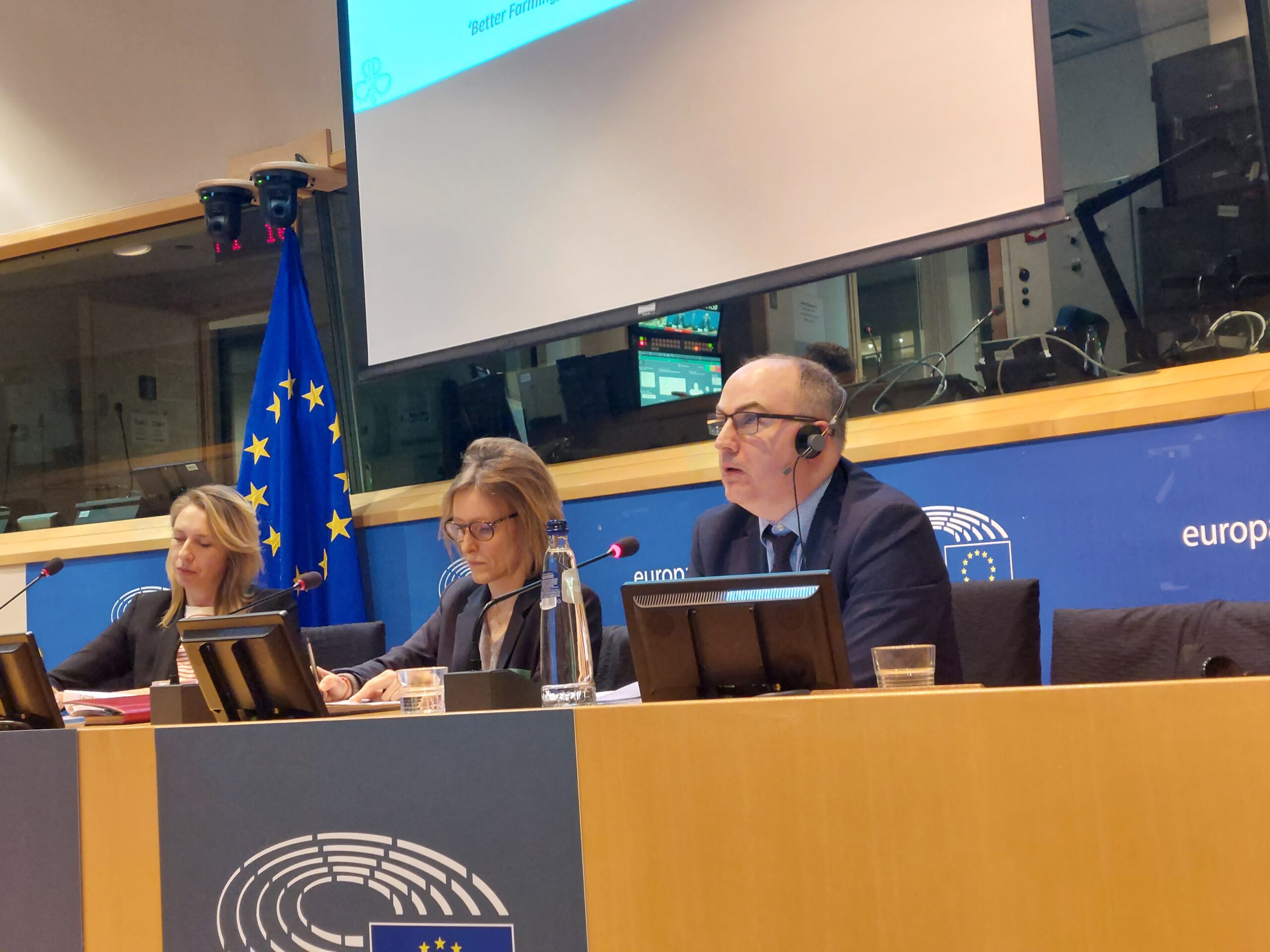ICOS concerns in relation to EU Animal Welfare Legislation Revamp

As part of the EU Farm to Fork policy, the EU Commission is in the final stages of preparing sweeping changes to animal welfare legislation which will include farm animals, animal transport and welfare labelling. The aim is to introduce this new legislation in September however there is deep concern among European Livestock organisations about the lack of consultation between stakeholders and DG Sante on the policy changes.
According to COPA-COGECA of which ICOS is a member, the debate is being dominated by non-economic stakeholders. “Since the start of the revision, the Commission has been asked to ensure a robust assessment of the social, economic, and environmental impact of the proposals for legislative change. However, the way the consultation and assessment processes are being conducted is not satisfactory”, the Brussels based organisation concludes.
Eamonn Farrell ICOS Agri Food Policy executive says that Irish Farming has an excellent record when it comes to animal welfare. “We are striving to build and maintain standards of excellence all the time, so new legislation in itself is not overly concerning. What is of concern to us is the risk of a one size fits all approach that will fail to recognise the nuances in production systems across Europe and create barriers to trade as a result.”
In relation to live shipping Mr. Farrell says the current transport rules date back to 2005 and so it is strongly anticipated that a revamp of these rules will happen following separate recommendations by the European Parliament and the European Food Safety Authority. “For our dairy farmers, changes to the rules relate to the transport of unweaned calves and our continued access to the EU single market for these animals will be critical. As an industry we need to prepare for these changes by building an economically sustainable dairy calf to beef production system.”
At COPA-COGECA level, concern has been expressed about the mandate of the European Food Safety Authority from DG Sante to make recommendations on animal welfare legislation calling for the need for an accurate economic impact analysis to be considered in any final proposal.
According to Eamonn Farrell, the Commission has a responsibility to take a rounded view of all factors when bringing forward new legislation especially given the potential impact it will have on multiple stakeholders across the food supply chain. “Take for example he possibility of a new animal welfare label, which is one the mooted proposals on the table. It won’t be a simple task to develop a credible and verified animal welfare labelling system for EU agriculture. In seeking to develop these new initiatives, the Commission needs to provide a full cost-benefit analysis for farmers, industry and consumers.”
He went on to say, “our simple message to the Commission is do not create barriers to trade. We are committed to strengthening animal welfare standards, and working with the Commission in this regard. This commitment is driven by farmers themselves and the value they place on the welfare of their animals.”
Mr. Farrell spoke about the high welfare standards of the Irish dairy sector when he addressed a conference in the European Parliament in January which was organised by the French dairy representative organisation CNIEL. The conference hosted by French MEP Jeremy Decerle focussed specifically on dairy cow welfare and Eamonn shared a panel with Agatha Gignoux of Compassion in World Farming,
“I really wanted to convey the strong emphasis placed on animal welfare by the Irish dairy industry, which is underpinned by our grass-based system. I highlighted the high level of collaboration there is in Ireland aimed at improving animal health and welfare standards through the Farmed Animal Welfare Advisory Council, Animal Health Ireland and directly by ICOS and our members”, said the ICOS man.
On the issue of animal welfare, the ICOS calf welfare charter has been carefully devised in collaboration with stakeholders and dairy co-operative representatives to build on the exceptionally high welfare standards currently in place on Irish dairy farms. The charter has recently been sent to co-ops for their consideration and has been widely endorsed.